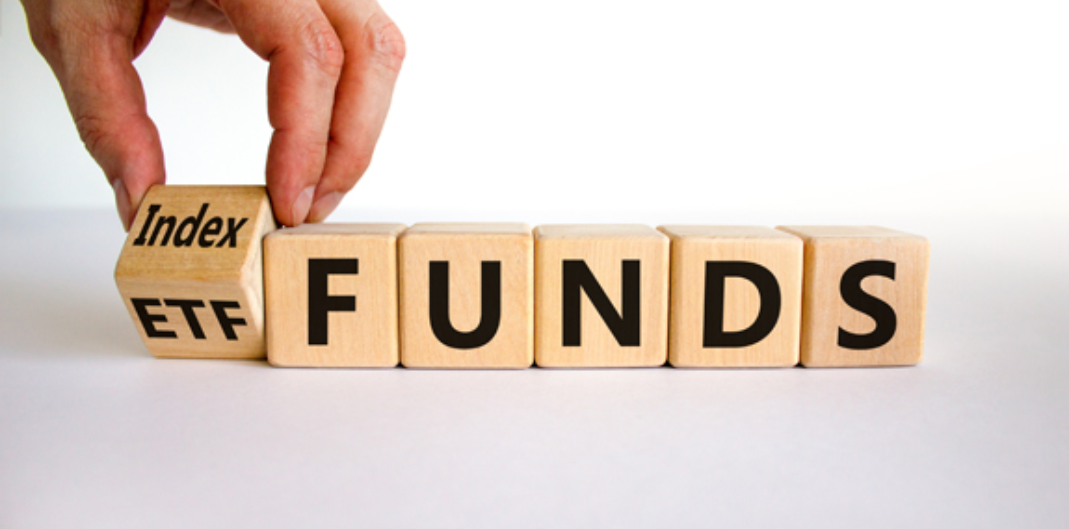- Reading time: 4 mins 20 Sec
Index Funds/ETFs: What's Better?
Investing has always been an essential part of personal finance, whether you’re saving for retirement, a home, or your child’s education.
With the rise of low-cost investing options, two of the most popular tools for growing wealth are index funds and Exchange Traded Funds (ETFs).
Both are widely regarded for their low fees, diversification, and ease of use, but out of index funds and ETFs which is better?
In this article, we’ll explore the intricacies of both investment vehicles, examine their pros and cons, and provide a detailed comparison to help you determine which one suits your financial goals.
What is an Index Fund?
An index fund is a type of mutual fund designed to track the performance of a specific market index, such as the FTSE 100 or S&P 500.
Instead of actively managing a portfolio to outperform the market, index funds aim to mirror the index’s returns by holding all (or a representative sample) of the securities within that index.
Index funds are “passively managed” and are primarily focused on long-term gains rather than short-term fluctuations.
How Index Funds Work
Index funds operate by buying and holding assets that align with the selected index.
If the index rises or falls, so does the fund. This approach offers broad diversification, since an index often represents a wide cross-section of an industry, country, or economic sector.
For example, an index fund that tracks the FTSE All-Share Index will include shares from large, medium, and small companies listed on the London Stock Exchange.
Key Benefits of Index Funds
- Low Fees: Because index funds are passively managed, they don’t require an expensive team of fund managers. This results in lower management fees compared to actively managed funds.
- Diversifikation: With one purchase, investors get exposure to a wide range of companies, industries, or sectors, spreading risk and providing stability.
- Consistency: Index funds generally match the market’s average returns. While you may not experience explosive gains, you’re less likely to suffer from extreme losses caused by the mistakes of active managers.
- Simplicity: Index funds are straightforward. You invest in a broad market index and let time work its magic, with little need to tweak your investments.
Drawbacks of Index Funds
- Limited Flexibility: Since index funds mirror their chosen index, investors have little control over the individual assets held in the fund. You can’t tweak the portfolio based on your preferences or market conditions.
- Slower Growth: Index funds aim to match, not beat, the market. While this is advantageous in many cases, it also means that during bullish markets, your returns may be lower than those of actively managed funds.
- Minimum Investment Requirements: Some index funds have relatively high minimum investment requirements, which may be a barrier for new or small investors.
What is an ETF?
An Exchange Traded Fund (ETF) is similar to an index fund in that it also tracks a specific index, commodity, or asset class.
However, unlike index funds, ETFs are traded on an exchange (like the London Stock Exchange) throughout the trading day, much like individual stocks.
ETFs can track a wide range of sectors, industries, or asset classes, including equities, bonds, commodities, or even niche markets such as renewable energy or biotechnology.
How ETFs Work
ETFs are structured to mimic the performance of a chosen index or asset, offering investors exposure to a broad set of securities in a single trade.
Because they are traded on exchanges, the price of an ETF fluctuates throughout the day, unlike an index fund, which is priced at the close of each trading day.
Key Benefits of ETFs
- Liquidity: ETFs can be bought and sold throughout the trading day, giving investors more control over when they enter or exit their positions. This flexibility can be advantageous in volatile markets.
- Low Costs: Like index funds, ETFs are passively managed, keeping costs low. Additionally, many brokers offer commission-free trades on ETFs, further reducing the cost of ownership.
- Diversifikation: ETFs offer the same broad diversification as index funds. By investing in one ETF, you can get exposure to a large number of securities or asset classes.
- Transparency: ETF holdings are disclosed daily, so investors always know exactly what they own, unlike mutual funds, which typically only disclose holdings on a quarterly basis.
- Tax Efficiency: ETFs tend to be more tax-efficient compared to mutual funds, thanks to their unique creation and redemption process, which can limit capital gains taxes.
Drawbacks of ETFs
- Transaction Costs: Although ETFs have low expense ratios, frequent trading can lead to transaction costs, especially for investors who buy and sell ETFs frequently.
- Bid-Ask Spread: Since ETFs trade like stocks, investors must deal with the bid-ask spread. For highly liquid ETFs, this spread may be negligible, but for more niche or less liquid ETFs, the spread can affect the overall cost.
- Fluctuating Prices: Because ETFs are traded on exchanges, their prices fluctuate throughout the day. This can be a disadvantage for investors who prefer the stability of a single price point like with an index fund.
- Over-Diversification: While diversification is a major strength, it can also be a weakness. In some cases, an ETF may hold too many assets, diluting potential gains from higher-performing securities.
To find out how ETFs affect Bitcoin, read Das.
ETF vs Index Funds: Comparison Table
It’s essential to compare index funds and ETFs because both are popular and effective investment vehicles, but they cater to different investment needs, goals, and preferences.
|
Aspect |
Index Funds |
ETFS |
|
Management Style |
Passive | Passive |
| Trading | Priced once daily; can’t be traded Intra-day | Traded like stocks throughout the day |
| Fees | Low, but often higher than ETFS | Very low, especially for commission-free trades |
| Liquidity | Lower liquidity; can only be bought or sold at the end of the day | High liquidity; can be traded anytime during market hours |
| Minimum Investment | Typically higher; may require a minimum investment. |
Usually no minimum investment requirements. |
| Tax Efficiency | Less tax-efficient due to frequent capital gains |
More tax-efficient due to in-kind creation/redemption process |
| Price Fluctuation | Price set once at the end of the day |
Prices fluctuate throughout the trading day |
| Investment Variety | Typically mirrors an index |
Can track Indices, sectors, commodities, bonds, or even currencies |
| Transparency | Holdings disclosed quarterly |
Hoidings disclosed daily |
| Reinvestment of Dividends | Automatic (in some cases) |
May require manual reinvestment unless you opt for an accumulation version |
| Accessibility | Available through most brokers, but some may have higher fees or minimums |
Highly accessible with no minimums and low costs via brokerage platforms |
| Ideal for | Long-term investors seeking stable, predictable growth |
Investors who value flexibility and intraday. trading |
- Different Trading Structures and Flexibility
- If you’re an investor who values flexibility and might need to react to market changes quickly, ETFs may be more suited to your style.
- On the other hand, if you’re a long-term investor who doesn’t want to be involved in market timing, index funds might be a better option.
- Diversification Options
- ETFs can track specific sectors, commodities, or even exotic asset classes, allowing for more targeted diversification.
- Index funds tend to follow broader market indices.



